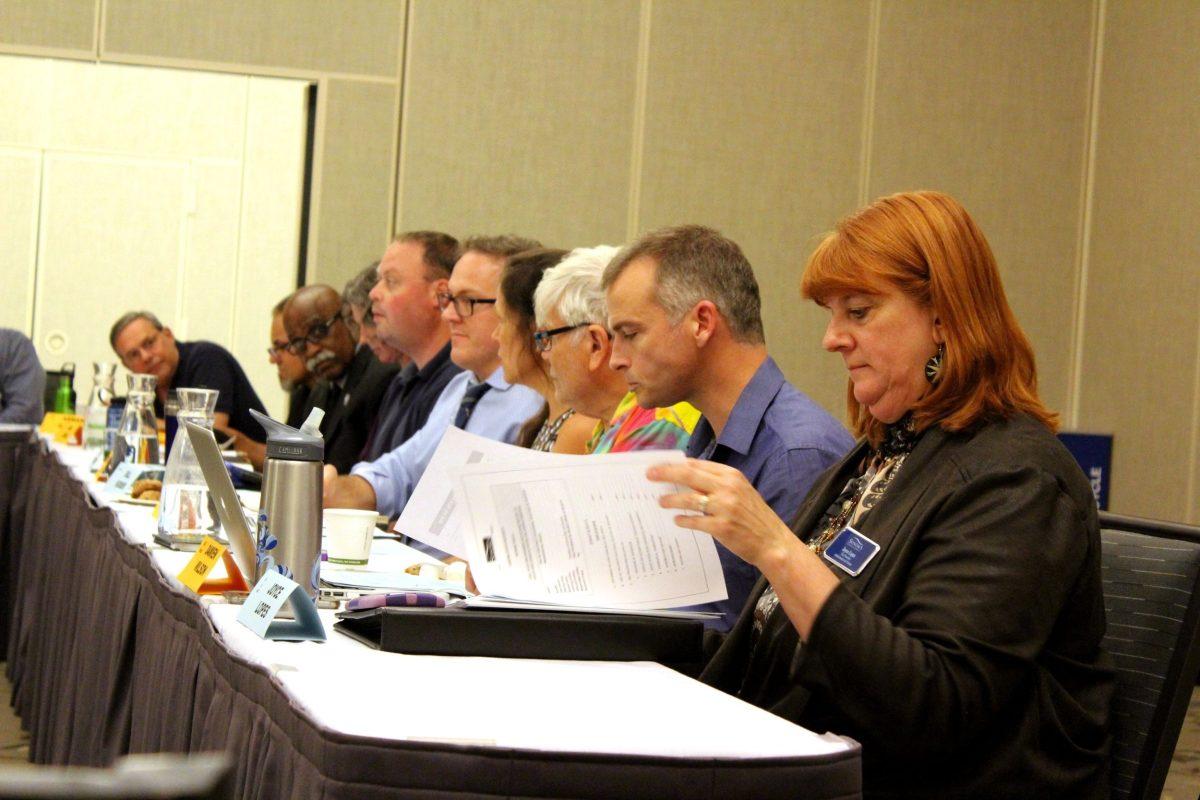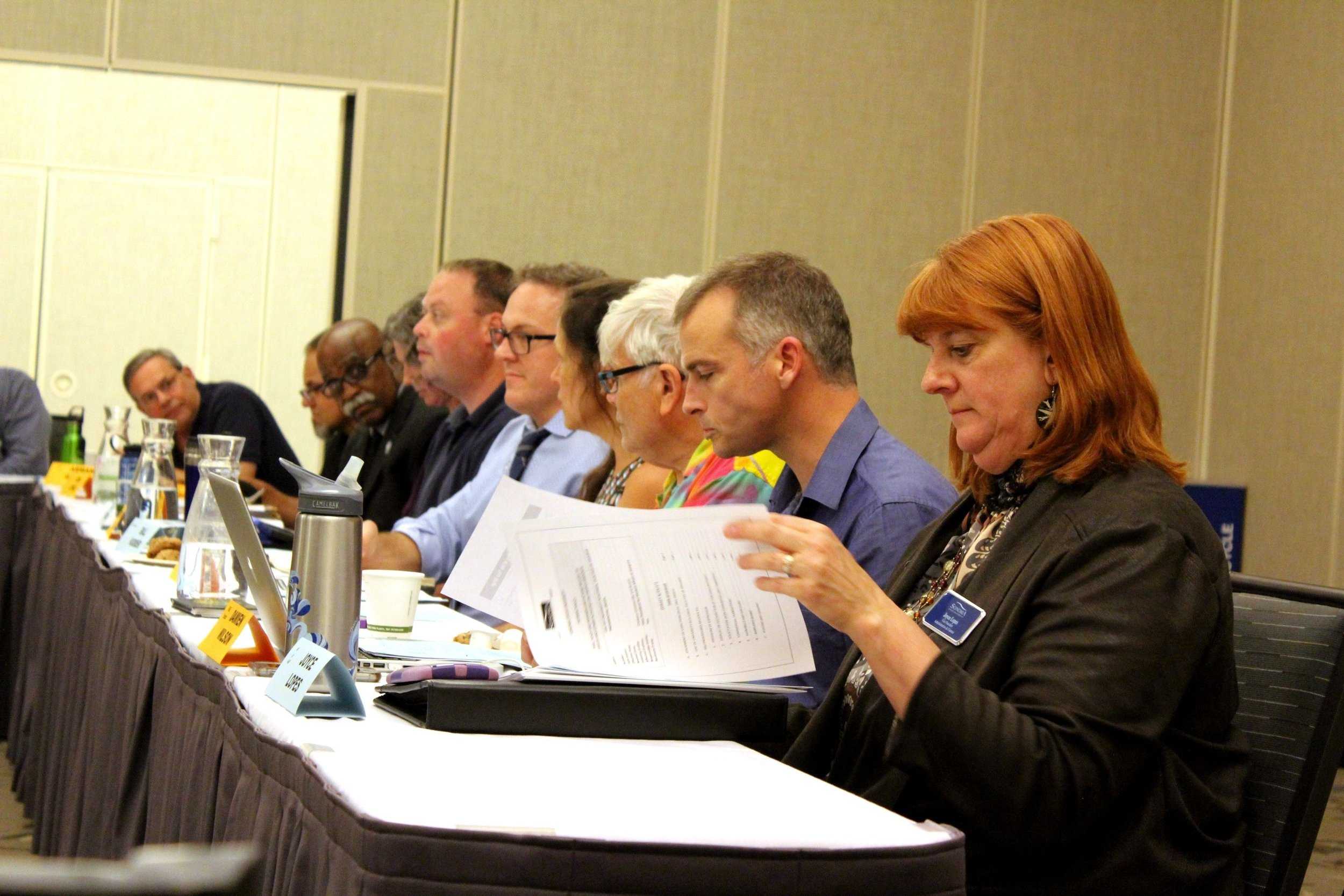California State University Chancellor Timothy White has directed Sonoma State and the 22 other CSU campuses to stop offering noncredit remedial courses traditionally offered to students who are unprepared for college-level instruction. Set to begin fall 2018, the order calls for Sonoma State University, along with the other 22 CSU campuses in the system, to replace these courses with “stretch” courses to provide remedial help as well as general education credit.
According to CSU officials, the system directs roughly 40 percent of their incoming freshmen to take at least one remedial class each year.
CSU officials say the classes, which come with no credit, often sidetrack students in their efforts to complete their educations within four years. Just 19 percent of students achieve their bachelorette in four years, a number the CSU system hopes to double by 2025.
“It will have a significant impact on the number of students that ultimately cross a commencement stage with a degree in hand, ready to move into the workforce, ready to move into graduate or professional school,” said James T. Minor, Cal State’s senior strategist for academic success and inclusive excellence.
As it happens, Sonoma State is ahead of many of its sister campuses in responding to this demand as the university has stretch courses already underway in the English Department, and math stretch courses are in their pilot stage this fall. These courses were part of a gradual three-year implementation plan; Executive Order 1110 speeds that timeline to one semester.
Through a directed self placement program on Moodle, which students can complete in about 90 minutes before or during freshman orientation, students can choose to take either the stretch English course (ENG100A/B) or ENG 101.
However, according to some university faculty, the time frame of implementing these “stretch” courses is too short to truly benefit students.
“It is not in the best interest of our students,” said Melinda Mulligan, chair of SSU Academic Senate Educational policies committee educational policy committee. “We have to figure out how to push back against this timeline because it’s unreasonable; it’s untenable.”
According to Doctor Brigitte Lahme, chair and professor of the mathematics and statistics department, the math department currently has a pilot stretch program in place, with four sections and 120 students. Yet, estimates say 600 Sonoma State students need remedial math development.
“In the mathematics and statistics department, we are not sure how placement will occur,” Lahme said. “Two concerns are the timeline and vetting the classes out so they will benefit the students.”
In addition to the removal of remedial courses, the order also plans to eliminate the English and math placement tests the school requires some incoming freshman to take before coming into the CSU system.
According to Associate Vice President of Student Affairs Matthew Benney, they will acquire placement function accomplished through the tests in other ways.
“These measures may include specific high school course grades, GPA’s, grades in relevant college courses completed, ACT/SAT scores, AP scores, International Baccalaureate scores, SAT subject tests or Smarter Balanced Assessment/Early Assessment Program scores,” Benney said. While details are not fully known, Doctor Karen Moranski, associate vice president of academic affairs, sees the possible benefits of the removal of the ELM/EPT.
“The tests, while useful for admissions and placement, also constituted a barrier to student progress in some situations,” Moranski said. “Students who did not complete the tests were sometimes at risk for disqualification, and we do not want students put at risk over the failure to pay for and take those tests.”
In a written statement by Jennifer Eagan, president of the California Faculty Administration and professor at CSU East Bay, the union is “demanding that CSU management meet-and-confer over these changes as they directly impact faculty and our working conditions.”
“Our timeline for implementation is aggressive,” Minor said, “but we’ve got more than enough evidence to suggest that our current treatment of students, with the use of developmental education courses, doesn’t serve them very well.”





![[Both photos courtesy of sonoma.edu]
Ming-Ting Mike Lee stepped in as the new SSU president following Sakakis resignation in July 2022](https://sonomastatestar.com/wp-content/uploads/2024/04/CC4520AB-22A7-41B2-9F6F-2A2D5F76A28C-1200x1200.jpeg)



























